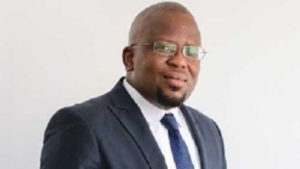Former Chairman of the National Media Commission (NMC), Nana Kwasi Gyan Apenteng has suggested that the licensing of frequencies for media broadcast in the country should be taken from the National Communications Authority (NCA) and be given to NMC.
He said for the simple fact that NMC is the regulator of media content, it is important for NMC to know what content the applicant for a frequency is proposing to churn out at the point of issuing the license.
“Under the current situation, the NCA issues the license and NMC has no clue what content the licensee is about to churn out and yet NMC is supposed to regulate that content,” he said.
Nana Kwasi Gyan Apenteng, who is also the recent past President of the Ghana Association of Writers (GAW) was speaking during the MTN Ghana Bright Conversation, which focused on him and his 40 years of journalism practice in Ghana and across the world.
In that conversation, the veteran journalist and writer argued that NMC, which is already an independent media regulator could easily perform the function of issuing broadcast licenses with technical advice from the NCA, instead of the NCA doing it without involving the NMC.
In an earlier virtual forum on media practice in Ghana, there were suggestions by panellists that, unlike the NMC, which is an independent regulator, the NCA is an agency of government under the Ministry of Communications (MoC), and its activities can therefore be largely influenced by the government of the day.
They noted that NCA top management are government appointees, and for that reason, it is perceived that its decisions could easily manifest the long arm of the executive attempting to gag perceived dissenting voices.
Indeed, recently, the NCA has been accused of closing down some radio and TV stations which support the leading opposition party, National Democratic Congress, including the popular Radio Gold and TV XYZ. But the NCA denied the charge, saying those stations were closed down because flouted their licensing terms and conditions.
Spiritualist on TV
Touching on the recent incident of some teens at Kasoa allegedly drawing inspiration from spiritualists on TV to go kill an 11-year-old boy for money ritual, he noted that if the NMC had had the required power to give content authorization before broadcast, “some of these things would have been curtailed.”
He argued that the laws that govern media practice in Ghana today were designed to suit conditions in the late 1980s or early 90s so many of them are no longer relevant to the current situation.
“GBC (Ghana Broadcasting Corporation) law, for instance, comes from 1968 and it still has references to the Minister as though GBC is supposed to answer to the Minister – while GNA (Ghana News Agency) law dates back to 1971 and still contains reference to the Prime Minister, a position that does not even exist in Ghana any longer,” he said.
Content Authorization
According to him, with all that in view, the NMC, under his Chairmanship, made an intervention by getting Parliament to pass the LI 222, designed to regulate content standards, with a provision on Content Authorization, which the media branded as a censorship tool and got the Supreme Court to shoot down the entire LI 222.
The Veteran Journalist maintained that it is because of the absence of content authorization for media broadcast that stuff like the money doublers, spiritualists and fraudsters are able to get on TV during the day, and influence teenagers to commit ritual murder.
“If the LI 222 had been in force, such content may have been pushed to midnight when all children are asleep those adults who still want to stay awake and watch it can do so,” he said.
Broadcasting Law
Nana Kwasi Gyan Apenteng noted that a more substantive solution would have been the Broadcasting Law, which is still in draft and has been languishing between the Information Ministry and Parliament for over 20 years without being passed.
He insisted that the Broadcast Law is designed to harmonize and update all the industry regulations to ensure that regulation is in tune with the times and current industry developments.
“The Kasoa incident is unfortunate but it should be a catalyst for the passage of the Broadcasting Law so that such inimical content in the media can be properly managed in the public interest,” he said.
Nana Kwesi Gyan Apenteng stated that, under his Chairmanship, the NMC came up with a 12-point code of conduct for religion broadcast, but it appears that code has been pushed to the background and the results is the influx of juju men and spiritualists on TV promising to double money.
Fund NMC
He also noted that the NMC itself has been left without funding for operations, so it is unable to keep up with the ever-expanding media landscape in terms of size and technology.
“The NMC comprises of members who are only working on part-time and they meet only six times in a year. The membership itself is made up of people who are not necessarily in media practice so what most of them bring on board for media regulation is not much.
“Whereas the NMC staff get their salaries from the state every month, the Commission itself does not get adequate funds for operations unless a development partners make a donation to support a specific project by the Commission,” he said.
He believes the state can do better, saying that, at next door Cote d’Ivoire, their equivalent of NMC is so well resourced that they have single committees with membership larger than Ghana’s entire NMC and their Chairman has scores of monitors in his office, which enables him to keep an eye on media content in real-time.
General News of Thursday, 15 April 2021
Source: Techgh24













